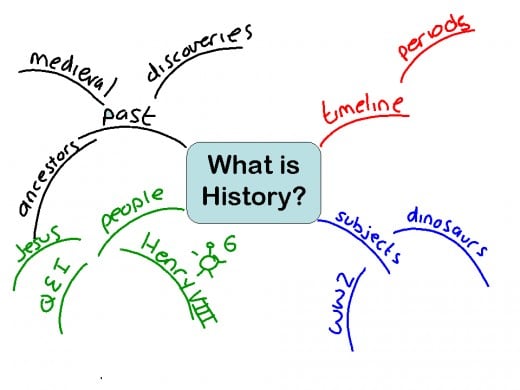What Is History? Why Is It Important? Why Should You Study It?

What is History?
Why is it that so many people laugh or make a remark when someone tells them that they are majoring in history? "What will you do with that?", is the common question I get asked after telling someone what I'm studying. Is it an ignorance about what history really is? Is it not knowing what history majors can do after they graduate? Is it because they think it is boring, so anyone who likes it must be crazy? I think it is a combination of all three, most of the time.

History is a class that most people either love or hate. There is usually not much of an in between. The teacher of the course also plays a big role in this. If the teacher enjoys the subject matter and is interested in it, they generally keep the students interested in it by pulling out the dry material and giving you the things you really need to know. If the teacher is monotone and just reads directly off a PowerPoint presentation, of course the class will be boring, but the same goes for any subject. I think the fact that most people's first history teachers were coaches, who really had no business teaching, gives them a bad impression of what the subject really is like. A good teacher can make all the difference, I hate math classes, but I've had a teacher who actually liked instructing in that field and was able to explain the material in a way that I could understand it and keep my attention. So in my opinion, the amount that someone will enjoy a class lies heavily on the person at the head of it giving the instruction, but history more so than most other fields is neglected when it comes to quality teachers at the high school level.

Why Do We Need It?
History is not just reading about dead people. It's not just knowing that the Wright brothers flew the first aircraft, or that Alexander Graham Bell created the first telephone. Yes, we do look at these things, but I have never taken a college level class on "inventions". This is exactly what most people tend to think when I say that I study history. My classes are generally more cause-and-effect oriented. An example would be a class on "Hitler and Nazi Germany", or "History in Film". These classes cover broad topics due to the amount of time we have to teach them, but they are still covering much more than inventions. We look at what caused certain events in history, what was done to remedy certain problems, and how we can learn from these to prevent them from happening in the future. A specific example of this is how President Harry Truman learned from watching Hitler in Europe, that you cannot give in to an aggressor or appease them, they will continue to push forward. This greatly influenced his decision in involving the United States in the conflict in Korea. History tends to repeat itself, so without studying what caused certain things to happen (positive or negative) we cannot truly be prepared to prevent or recreate those events.
What can someone do with a major in history? This answer may not be as specific as, say, someone who majors in nursing, but it does give you a broad field to work with. Most commonly you would see history majors in academia or even teaching high school. But this is not the only option, many lawyers have degrees in history before they go to law school. After a quick Google search for "Careers for history majors" here a few that came up:
- Museums and Historical Organizations
- Cultural Resources Management and Historic Preservation
- Think Tanks
- Writers and Editors
- Journalists
- Documentary Editors
- Producers of Multimedia Material
- Historians As Information Managers
- Archivists
- Records Managers
- Librarians
- Information Managers
History is a field that gives you a very broad selection of careers to pursue, and the more advanced degrees will begin to narrow down to a specific period or theme. This is when you see many history majors being authors and doing further research in their field, or working with universities to get their research funded. Several of the professors that teach at my university have been to the Middle East and Western Europe to do research, completely funded by either the university or grants.
The skills that one learns while working towards a degree in history, or similar social sciences should also not be overlooked. These fields usually require much more research oriented work than many others, as well as developed critical thinking skills to sift through "What if.." and "What led to this..." scenarios. These are skills that can be applied to most any job outside of academia.
Highly Recommend Reading

Why Is History Important?
History is a legitimate major and should be looked at as one by other students. The jobs after it may not make you rich like being a doctor would, or may not guarantee you a quick job like nursing. But I know so many people that go into those two areas and really don't enjoy the material, that to me is the crazier thing. I started my college career in biology, and could have finished there, but I realized that I didn't care about what was being taught. Sure I probably would have had better paying job offers once I got out, but the material did not interest me, so I would not have enjoyed what I was doing. With history, I look forward to going to class and continuing my education, which is why we are all in college right? Not just to qualify for a job, but to further our education. The truth is, we need history, it gives us a means to learn from the past and use it to shape the future.





